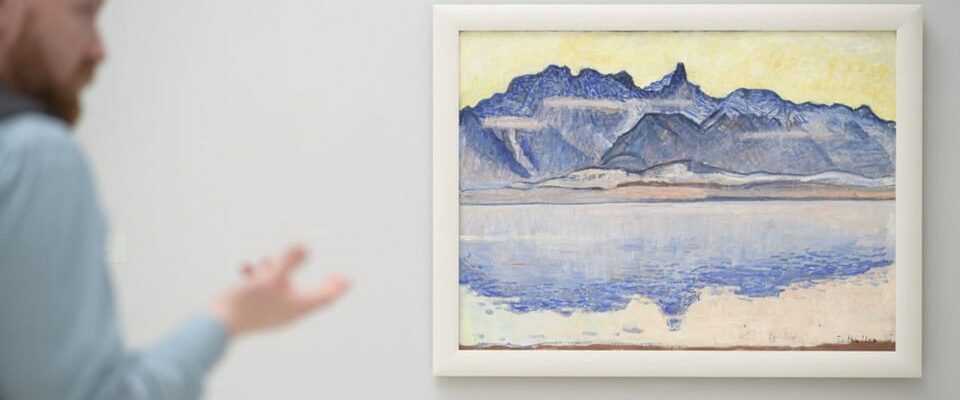contents
Is that Nazi-looted art or not? A permanent, impartial commission is to recommend solutions for disputed cases. Parliament is currently deliberating on the motion by SP National Councilor Jon Pult. What do art experts say about this?
When two people argue, the third party isn’t happy for once. Rather, he – or she – helps to find a solution as an impartial mediator. This is how it should work with the commission for cultural assets seized as a result of Nazi persecution, which SP national councilor Jon Pult in his Motion demands.
Almost all countries have such a commission to find the broadest possible solutions to contentious cases. And there are some disputed cases – also in Switzerland.
Put an end to lengthy mediation processes
An example is the Hodler picture «Thunersee mit Stockhornkette». It was presented by the Kunstmuseum St. Gallen years ago as a Nazi looted art classified but still not returned. Why? The picture does not belong to the museum, it is on permanent loan from a private foundation.
Legend:
Some cases – including the picture “Thunersee mit Stockhornkette” by Ferdinand Hodler – drag on for years due to their tricky starting point.
KEYSTONE/Gian Ehrenzeller
The heirs of the donors insist on bona fide acquisition, the heirs of the Jewish collector Max Silberberg on restitution. A stalemate situation that the museum has moderated for years.
Independent mediators should work out solutions
A national commission could perhaps help, says Samuel Reller, provenance researcher at the Kunstmuseum St. Gallen: “The potential of such a commission lies in mediation.” Disputing parties with naturally opposing positions could perhaps be persuaded to find a solution by independent third parties.
Nina Zimmer, director of the Kunstmuseum Bern and the Zentrum Paul Klee, also welcomes a national commission and hopes for broadly based solutions, especially when the situation is difficult.
It is also clear to Nina Zimmer that art sales must also be the subject of the commission. “Setting up a single category of ‘escape goods’ makes no sense.” Rather, it is important to precisely define the circumstances under which sales are to be assessed as confiscation as a result of Nazi persecution.
skepticism on the art market
While museum people largely agree, representatives of the art market see other problems. A commission is certainly a good idea, but it doesn’t solve the main problem, according to Bernhard Bischoff from the “Association of Swiss Auctioneers”.
The market is struggling with the frequently occurring gaps in the provenance of works that are for sale. These gaps make the affected works practically unsaleable: “We have to prove that such a work is not looted art,” says art dealer Bischoff. This reversal of the burden of proof is not affected by the introduction of the commission.
A commission cannot solve everything
Auction houses in particular have played a prominent role in the discovery of new cases in the past. And provenance research is also key here.
However, what do fair solutions look like and whether they can be found if it is not 100 percent certain that Jewish collectors had to sell a certain work under duress? Such questions will continue to cause differences in Switzerland – with or without a commission.
